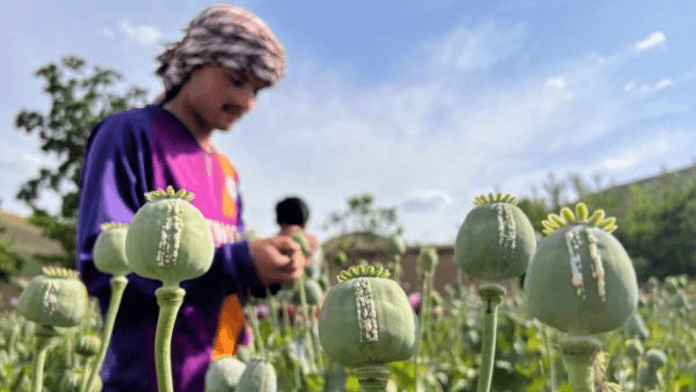News in Brief:
– Myanmar’s opium production surges, amid political turmoil and armed conflict, making it the world’s top producer.
– Local farmers turn to opium cultivation as a means of survival as economic instability and costs escalate, while traditional crops face challenges due to displacement and disrupted export channels.
Facing economic instability and armed conflict, many farmers in Myanmar have turned to cultivating poppies (opium) as a means of survival.
As traditional crops are yielding less profit and facing the challenges of conflict and currency devaluation, opium cultivation has become an attractive option, as an Aljazeera report shows.
Impact of conflict on agricultural economy
Forced to abandon her fields due to conflict, Aye Aye Thein reflects the plight of countless farmers displaced by the ongoing turmoil in an interview with the news outlet. The inability to tend to traditional crops, coupled with soaring costs and disrupted supply chains, has left many with little choice but to turn to poppy cultivation.
The ongoing conflict disrupts transportation networks and hampers the export of staple crops such as rice and corn, as noted by the World Bank. In contrast, opium cultivation sees advancements, with increased investment and improved irrigation techniques boosting yields.
Myanmar’s opium production reached an estimated 1,080 metric tonnes last year, a significant rise from the previous year’s 790 metric tonnes, as reported by the UN Office on Drugs and Crime.
The opium harvested is refined into heroin in clandestine facilities nestled in Myanmar’s jungles, before being trafficked through neighboring countries like Thailand and onto the global market.



